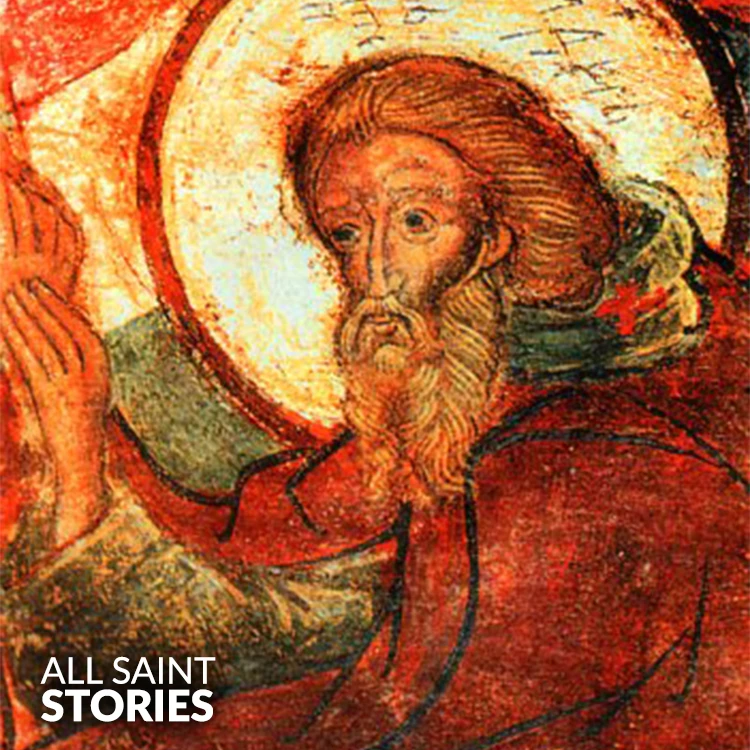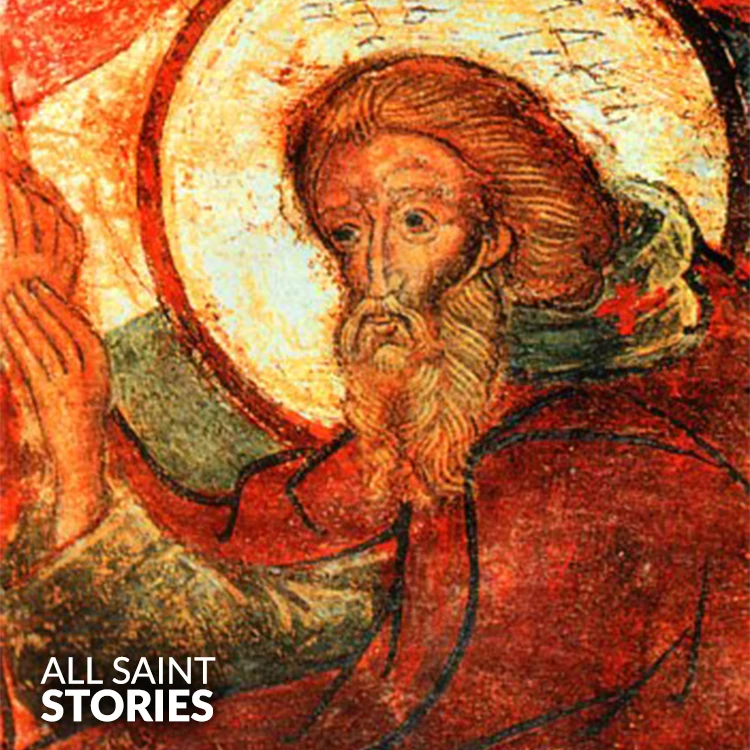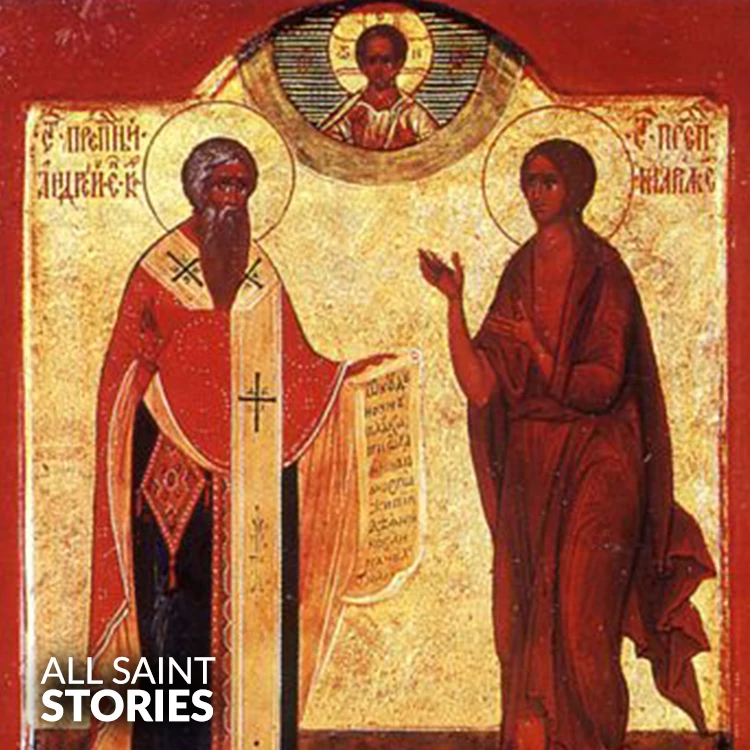St. Andrew of Crete, Devoted bishop and teacher of the faith, Pray for us to deepen our devotion to God. Help us to live with humility, And to follow Christ’s path with courage and love. Amen.
ST. ANDREW OF CRETE
ST. ANDREW OF CRETE

St. Andrew of Crete was a 7th-century bishop, theologian, and hymnographer, best known for composing the Great Canon of Repentance. Celebrated for his deep spiritual insight and eloquent liturgical hymns, he is honored on July 4 in the Eastern Orthodox Church.
St. Andrew of Crete, also known as Andrew of Jerusalem or Andrew the Hymnographer, was one of the most influential figures in the development of Byzantine hymnography and Orthodox Christian theology. Born around 650 AD, likely in Damascus though some sources suggest Jerusalem, he was mute until the age of seven. According to tradition, he miraculously began to speak after receiving Holy Communion, a sign believed to foreshadow his future spiritual importance.
He joined the Monastery of Saint Sabbas near Jerusalem, where he was tonsured a monk. His brilliance in theological understanding and oratory led to his being sent to Constantinople as a representative of the Patriarchate of Jerusalem. There, his reputation grew rapidly, and he eventually became the archdeacon of the Great Church (Hagia Sophia). Later, he was appointed as the bishop of Gortyna on the island of Crete, a role in which he served until his death around 740 AD.
St. Andrew’s most famous work is the Great Canon of Repentance, a monumental hymn composed of 250 strophes. This Canon is recited during the first week of Great Lent and again in full on the fifth Thursday of Lent in the Orthodox Church. The Canon is a profound meditation on sin, repentance, and redemption, drawing upon nearly every major figure and event in the Bible to reflect on the human condition. It is unique not only in length but in its deeply personal tone, as the author constantly identifies himself with the sinners of Scripture, urging self-reflection and heartfelt contrition.
In addition to the Great Canon, St. Andrew composed numerous other hymns, including canons, stichera, and kontakia, many of which are still used in Orthodox liturgical services today. His style of hymnography was crucial in transitioning the church's poetic expression from the older style of Romanos the Melodist's kontakia to the newer canon form, which would dominate Byzantine liturgical poetry.
Theologically, St. Andrew was a staunch defender of Orthodoxy during the period of the Monothelite heresy, which denied the full human will of Christ. He supported the decisions of the Sixth Ecumenical Council (680–681 AD), which affirmed the doctrine that Christ possesses both a divine and human will. His sermons and theological writings reflect a profound understanding of Christology and Trinitarian theology, always articulated in a deeply pastoral and poetic manner.
Although details about his death and burial are limited, his influence has endured through the centuries. He was canonized before the formal procedures of the Church were established (pre-congregation), and his feast day is celebrated on July 4 by the Eastern Orthodox Church. His life and works remain a spiritual wellspring, particularly during the Lenten season, when the faithful turn to his Great Canon as a guide to penitence and humility.
Video Not Found
The information on this website is compiled from various trusted sources. While we aim for accuracy, some details may be incomplete or contain discrepancies.
If you notice any errors or have additional information about this saint, please use the form on the left to share your suggestions. Your input helps us improve and maintain reliable content for everyone.
All submissions are reviewed carefully, and your personal details will remain confidential. Thank you for contributing to the accuracy and value of this resource.
Credits & Acknowledgments
- Anudina Visudhar (Malayalam) – Life of Saints for Everyday
by Msgr. Thomas Moothedan, M.A., D.D. - Saint Companions for Each Day
by A. J. M. Mausolfe & J. K. Mausolfe - US Catholic (Faith in Real Life) – Informational articles
- Wikipedia – General reference content and images
- Anastpaul.com – Saint images and reflections
- Pravachaka Sabdam (Malayalam) – Saint-related content and insights
We sincerely thank these authors and platforms for their valuable contributions. If we have unintentionally missed any attribution, please notify us, and we will make the correction promptly.
If you have any suggestion about ST. ANDREW OF CRETE
Your suggestion will help improve the information about this saint. Your details will not be disclosed anywhere.
© 2026 Copyright @ www.allsaintstories.com




 English
English
 Italian
Italian
 French
French
 Spanish
Spanish
 Malayalam
Malayalam
 Russian
Russian
 Korean
Korean
 Sinhala
Sinhala
 Japanese
Japanese
 Arabic
Arabic
 Portuguese
Portuguese
 Bantu
Bantu
 Greek
Greek
 German
German
 Dutch
Dutch
 Filipino
Filipino